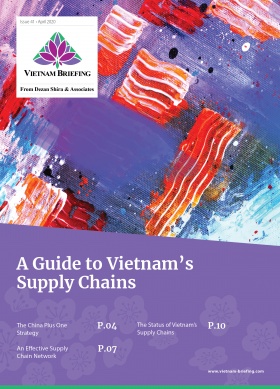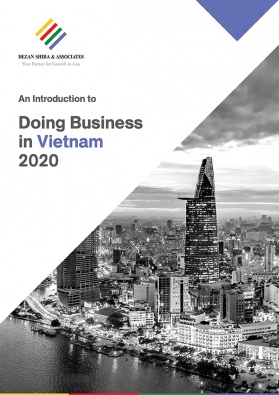Updated Requirements for Representative Offices in Vietnam
Representative Offices (ROs) are an effective tool for foreign investors hoping to analyze Vietnamese market trends and engage in limited cooperation with local companies. Compared to 100 percent Foreign Owned Enterprises (FOEs), however, ROs offer significantly limited functionality.
Representative Offices are typically a dependent unit of their respective parent company, forbidden to generate their own profits and prevented from entering directly into contracts. Furthermore, ROs are strictly forbidden to issue invoices.
In terms of permitted activities, ROs may recruit local and foreign employees directly or through an agency, lease office space – restricted to only one office in a province or city, equip themselves with facilities necessary for operations, obtain their own company seals and open local bank accounts for operational purposes.
Decree No. 07/2016/ND-CP
Introduced in January of 2016, and effective from March 10th, Decree 7 is to become Vietnam’s guiding document for the interpretation of the current Commercial Law on Representative Offices (“RO”) and Branches of Foreign Business Entities in Vietnam. For current and prospective investors, there are a few notable differences between Decree 7 and its predecessor – Decree 72/2007 – that should be noted:
- Limits to functionality – Previously included under permitted activities within Decree 72/2006, “monitoring and activating performance of contracts of the foreign business entity signed with Vietnamese parties or related to Vietnamese markets” has been removed from Decree 7. It should be noted that these changes are not retroactive, and thus companies operating in accordance with guidance issued under Decree 72 will be allowed to continue in this manner until the expiration of their existing licenses.
- Staffing – If the head of the representative office plans to leave Vietnam, he or she is required to appoint another individual to carry out his or her tasks during the planned absence. If this period is in excess of 30 days, Decree 7 stipulates that all powers should be formally delegated – in writing – or the head of the RO should be replaced.
- Changes to Listed Information – Alterations t0 the address or names of representative offices currently registered with governmental authorities require the RO in question to report these changes.
- Name changes must be notified within 60 days (up from the current limit of 10) via an application to amend the business license.
- Changes to addresses must be notified to the relevant licensing body. If a change in address results in relocation to another jurisdiction within Vietnam, an application for the reissuance of a business license must be applied for no more than 30 days from the date at which the prior jurisdiction was notified.
Updated Licensing Procedures
RO establishment shall be granted if the parent company meets the requirements of possessing an authorized business registration certificate in its country of incorporation and being in operation for at least one year since the effective date of incorporation.
Licensing authority expanded
For many companies, the application dossier for an RO license must be submitted to the Provincial Ministry of Industry and Trade. New to Decree 7, management boards of Special Economic Zones (SEZs) have also been vested with licensing powers for those companies operating within their respective industrial zones, export processing zones, or high tech parks.
Shortened issuance times
An RO license, valid for five years maximum with an option for renewal, shall now be issued within seven working days from the government’s receipt of valid application documents, excluding any time spent amending or supplementing the application. This timeframe is a significant adjustment from the 15-day timeline found under Decree 72.
Requisite Documentation
An application dossier for obtaining the RO license has not changed under Decree 7 and continues to require the following:
- An RO application letter and chief representative appointment letter, signed by the legal representative and affixed with the company chop or seal;
- A notarized copy of the Certificate of Incorporation, business registration certificate of the parent company (if any), or another government-certified document showing the business lines of the parent company (if the registration documents do not mention business lines);
- A notarized copy of the Company Charter (i.e. Memorandum and Articles of Association);
- A notarized copy and Vietnamese translation of audited financial reports or other legal alternative documents showing the parent company’s latest financial year issued by an independent auditing company;
- An original copy or valid notarized copy of the official lease contract in Vietnamese, from a landlord certified to lease the office
Note: All copies of these documents must be notarized by the Vietnam embassy in the foreign investor’s country. Documents in a foreign language must be translated to Vietnamese, notarized and certified by the Vietnamese competent agencies. If an application is invalid, the parent company shall receive a written notification within three business days of the date such an application is received.
Post-Licensing Procedures
Operating Announcement
While Decree 72/2006 stipulated requirements relating to the publication of an RO’s Establishment, this is no longer required under Decree 7.
Opening Bank Accounts
Regulations surrounding bank accounts have remained the same under decree 7. An RO is allowed to open bank accounts in Vietnamese Dong and foreign currency bank accounts at licensed banks in Vietnam for payment purposes. These accounts shall be used for the RO’s operation activities only. Due to the RO’s legal limited scope of activities, the accounts must not be used for profit-generating activities. In case the RO wants to transfer money abroad, it needs to give a reasonable purpose. Last but not least, all the activities related to the RO’s accounts including opening, use, and closure must comply with the stipulations of the State Bank of Vietnam (SBV).
Tax and Reporting
Similar to banking, tax and reporting regulation has seen little change under Decree 7. An RO is not subject to Vietnamese corporate income tax (CIT). However, it still has to pay value-added tax (VAT) when consuming goods or services from other Vietnamese enterprises and is responsible for declaring its employees’ personal income tax (PIT).
An RO must submit a written annual report on its operations of the preceding calendar year before the final working day of January.
About Us
Vietnam Briefing is produced by Dezan Shira & Associates. The firm assists foreign investors throughout Asia from offices across the world, including in Hanoi and Ho Chi Minh City. Readers may write to vietnam@dezshira.com for more support on doing business in Vietnam.
- Previous Article Circular 59: Updates to Vietnam’s Social Insurance Scheme
- Next Article Vietnam Regulatory Brief: Foreign Specialist Tax Exemptions and Slated Issuance of International Driving Permits






